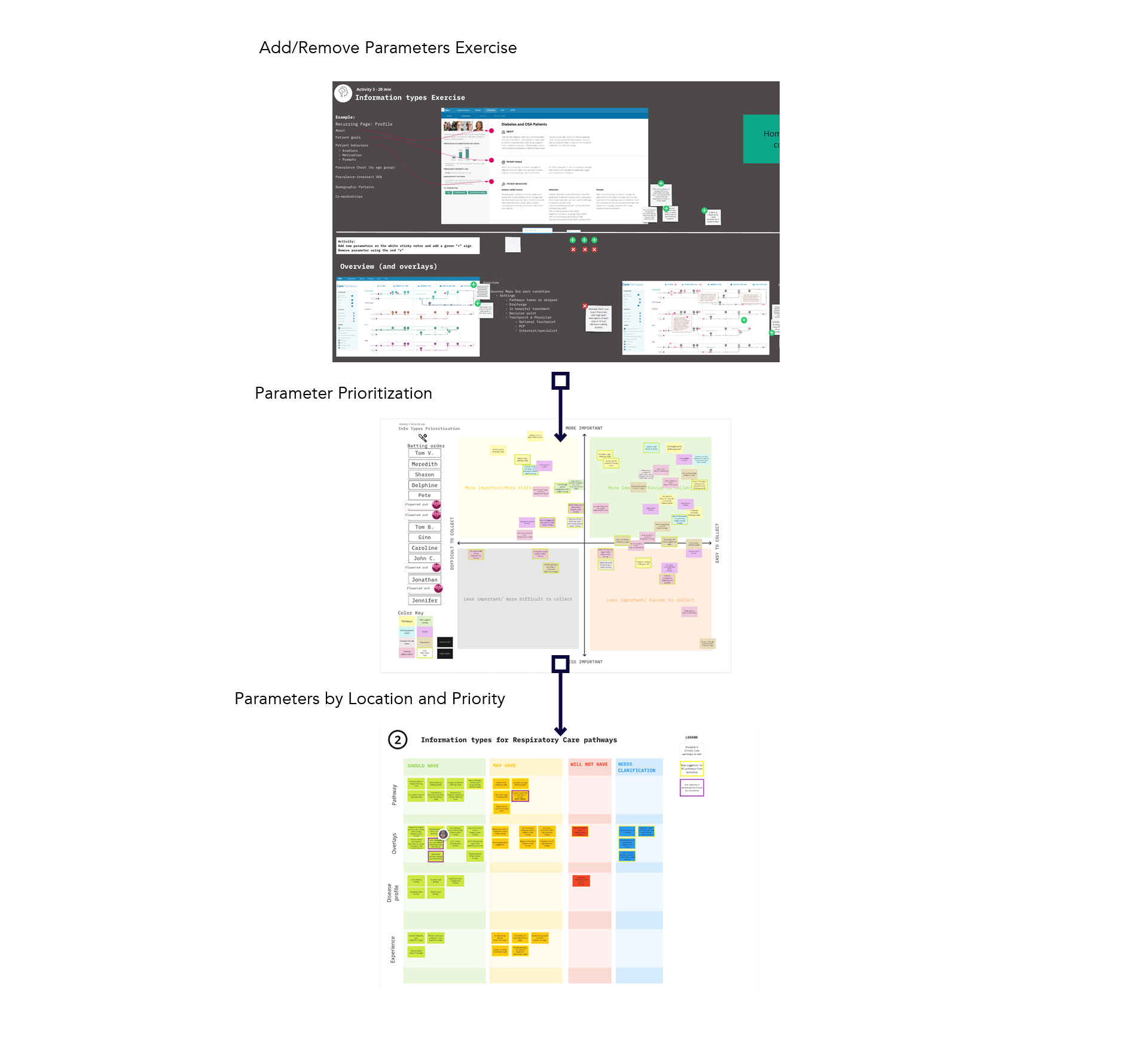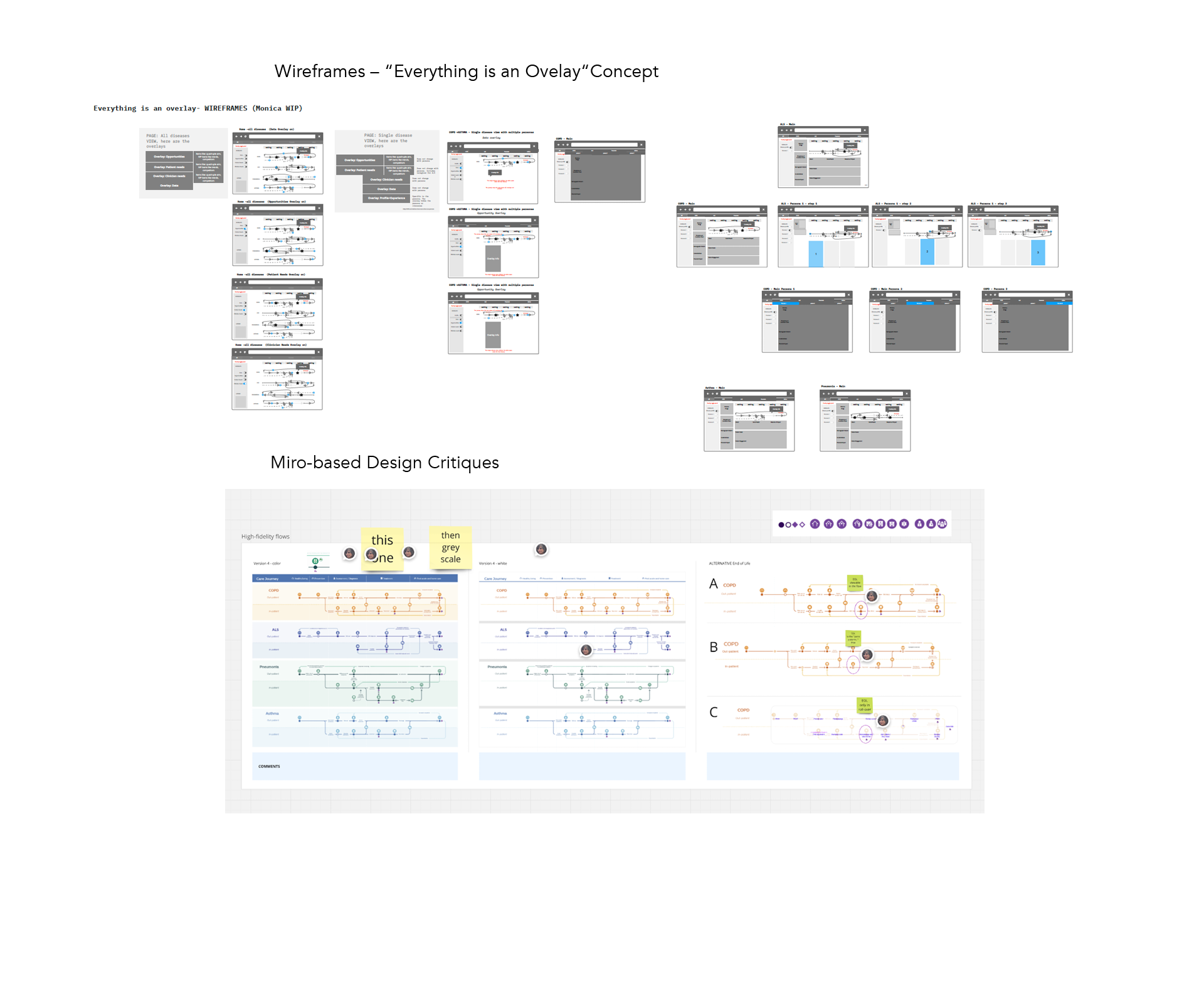
Interactive Patient Journeys
Discovering Healthcare Gaps for Respiratory Patients
Key Facts
Roles: Design Lead, Service designer, UX/UI designer, Project Manager
Duration: 3 months
Team Size: 10, 1 service designer, 2 UX/UI designers, 1 Interaction designer, 3 scientific writers, 2 copywriters, 1 business plan writer
Key Stakeholders: Marketing, Strategy
Tools: Miro, Excel, InDesign, PowerPoint, Axure
STAR Analysis
-
Philips Healthcare's Sleep & Respiratory Care division needed to better understand and support patients with respiratory conditions by identifying and addressing gaps in the existing patient journey through innovative solutions. To achieve this, I led a cross-functional team to create an interactive journey map, facilitating collaboration between designers, researchers, and stakeholders across three time zones, while developing and validating journey maps with medical Key Opinion Leaders to ensure consistent design and content delivery.
-
Implemented Scrum methodology for project management
Created detailed templates for content creation and maintained consistency
Conducted regular design critiques focusing on aesthetics, content, and usability
Led stakeholder alignment workshops to prioritize information
Wrote requirements and contributed to wireframe development
Conducted research with KOLs to map Patient Care Pathways
Collaborated on creating final deliverable
Coordinated between designers, scientific researchers, and copywriters
-
Delivered a successful interactive Axure artifact that received high engagement
Enabled informed strategic decision-making for the business
Solutions identified were incorporated into the product pipeline
Maintained consistent project delivery across multiple time zones and team members
Process & Deliverables
Journey Discovery -KoL Journey Reviews
I facilitated journey reviews with Medical Key Opinion Leaders at Philips.

User Needs Discovery - Parameters
Building on a previous successful project, we engaged stakeholders to identify which information parameters to add, remove, or keep (such as "persona demographics" or "average length of treatment"). I led multiple workshops for this purpose. We prioritized parameters based on two criteria: how feasible they were to collect and how important they were to our primary users—the internal stakeholders.
This workshop asked: “what information does the user need and when?”

Content-Graphics Alignment
To maintain consistent content style and character length limits, I created detailed templates to guide both the scientific writers and copywriters through the journey story content creation.

UX/UI Design
I regularly ran critiques with communication and UX designers. We covered journey design, illustration, interaction design, and iconography.
I also created wireframes showing an “everything is an overlay“ concept which became the foundational approach for information discovery. This represented both a departure from and an improvement upon a previous project with similar objectives.
I swarmed with the UX designers and used Illustrator to create screens and overlays for our Axure expert in our Shanghai Studio to integrate.

Demo of Respiratory Care Patient Journeys